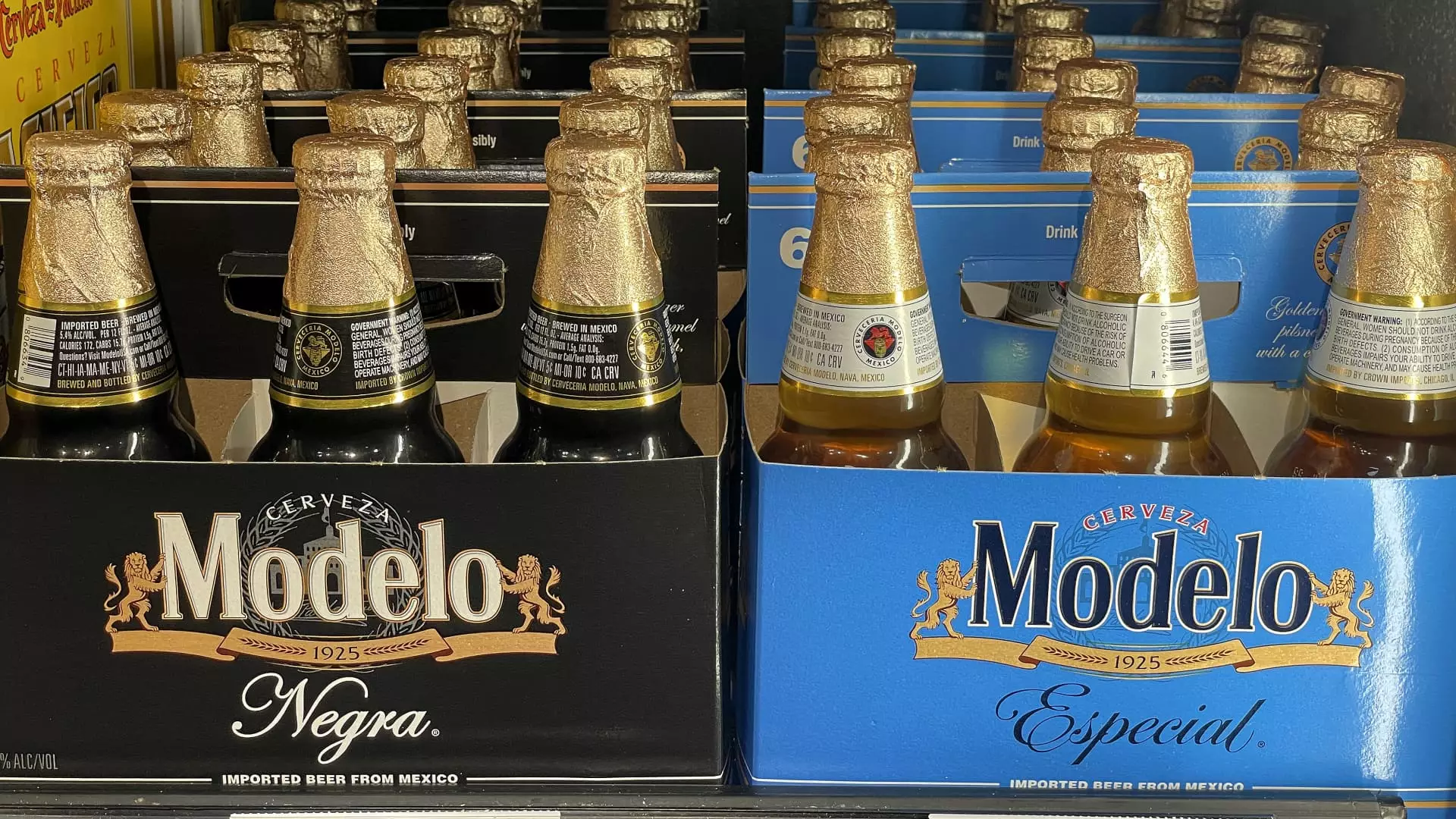The recent dip in Constellation Brands’ sales, primarily attributed to declining demand from Hispanic consumers, serves as a stark indicator of the fragile economic and social fabric of the United States. While often overlooked in mainstream discourse, the purchasing behaviors of Latino Americans are a bellwether for broader societal health. The fact that their spending has waned amid immigration crackdowns and political hostility reveals a deeper anxiety rooted in fear and uncertainty. As patriotically-minded conservatives, we must scrutinize how governmental policies and societal rhetoric influence economic vitality, particularly within communities that are vital to the nation’s growth and diversity.
This downturn isn’t merely a cosmetic issue for beverage companies; it signals a potential erosion of the economic integration and upward mobility that has historically driven U.S. prosperity. Eroding consumer confidence within a significant demographic—whose economic contribution is nearly half of Constellation’s sales—risks creating a ripple effect far beyond the brewery aisle. When core consumers shy away from spending due to fears of political instability and job insecurity, the broader economy suffers. Economic health relies on stability, and political hostility undermines this essential foundation.
Politicization of Immigration and Its Economic Consequences
The root of the problem lies in the increasingly hostile environment fostered by hardline immigration policies. The Trump administration’s aggressive deportation campaigns and immigration enforcement actions have cultivated an atmosphere of insecurity among Latino communities. This isn’t an abstract political debate; it translates into tangible economic outcomes. Families who fear separation or job loss are less inclined to indulge in discretionary spending—especially on products tied closely to their cultural identity and community, such as Hispanic brands.
Concurrently, uncertainty around employment prospects in industries that employ many Latinos exacerbates this hesitation. When dominant figures in government threaten their livelihoods, the very fabric of these communities frays, reducing purchasing power and weakening the consumer market that companies like Constellation depend on. This climate of fear and instability reduces consumer confidence, an intangible yet powerful driver behind economic resilience.
Market Responses and Broader Implications
The fact that major corporations like Coca-Cola and Colgate-Palmolive report similar declines signifies a larger trend: the alienation of Hispanic consumers by current political strategies is damaging the financial health of industries inherently tied to this demographic. Conservative principles advocate for a more balanced approach—one that respects national borders while fostering economic growth and social cohesion. Overly aggressive policies risk alienating the very communities that fuel American innovation and enterprise.
Constellation’s willingness to maintain its full-year outlook, despite short-term setbacks, reflects a confidence in traditional market strengths. Yet, this optimism may overlook the underlying social fissures that threaten long-term stability. If policymakers continue on a confrontational course, economic fragmentation will deepen, and marginalized communities will bear the brunt—not just politically, but as vital contributors to the country’s economic engine.
The decline in Hispanic consumer spending caused by political hostilities represents more than just a company’s quarterly earnings warning; it highlights a vital fault line in American society. For those committed to economic nationalism rooted in unity and strength, addressing these social divisions must be a priority. Prosperity in a diverse nation depends on recognizing the importance of integration, respect, and measured policy that fosters confidence rather than fear.

